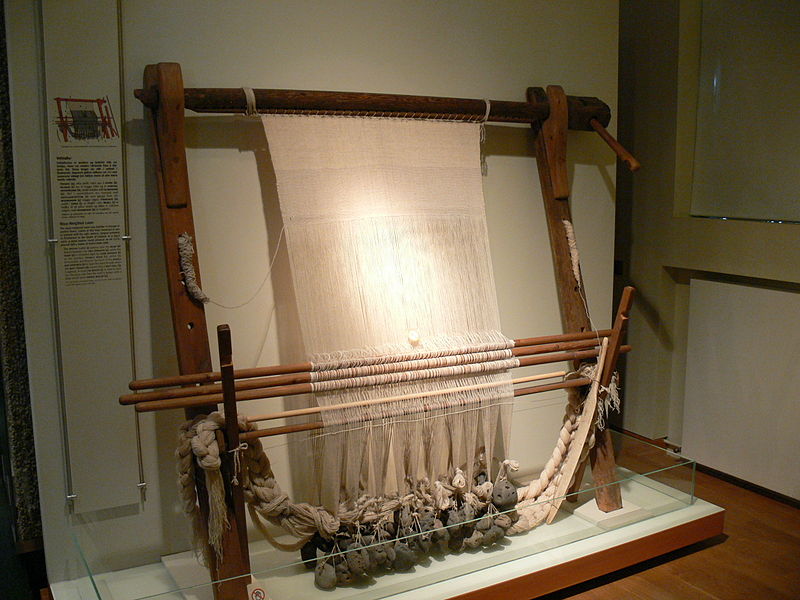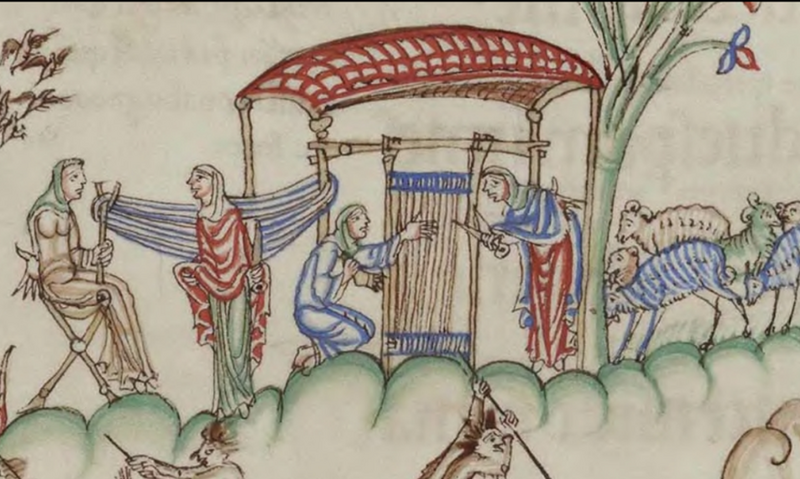Bern Riddle 52: De rosa
NEVILLEMOGFORD
Date: Wed 02 Dec 2020Matching Commentaries: Commentary on Bern Riddle 52: De rosa
Mollis ego duros de corde genero natos;
In conceptu numquam amplexu viri delector.
Sed dum infra meis concrescunt fili latebris,
Meum quisque nascens disrumpit vulnere corpus.
Postquam decorato velantes tegmine matrem
Saepe delicati frangunt acumine fortes.
Soft, I make hard children from my heart.
During conception, I never enjoy the embrace of a man.
But while my sons grow in my secret places,
each one breaks my body with a wound as they are born.
After that, wrapping the mother in a decorative covering,
the delicate often break the strong with a spike.
Tags: latin Bern Riddles





Commentary on Bern Riddle 52: De rosa
NEVILLEMOGFORD
Date: Wed 31 Mar 2021Matching Riddle: Bern Riddle 52: De rosa
This riddle is the second in the Bern collection on the rose plant (the first is Riddle 34). The Bern Riddles are highly metaphorical, and they frequently combine two images—a human and a non-human one—to show how extraordinary behaviour in the human world can be considered normal in the non-human one. Riddle 52 does this exceptionally well, by presenting the germination of roses as a far from rosy mother-son relationship.
There is a lot going on in this riddle, so you may wish to have a copy of it open alongside my commentary—I’ll try not to go too fast! The opening line plays on the possible meanings of durus (“hard”) and mollis (“soft”). The human mother is “pretty” (mollis), but she produces children de corde duro (“from a hard heart”), a phrase that could also be understood as an unwilling or a difficult birth—the riddle returns to this theme in the next line. At the same time, the “soft” or “flexible” (mollis) plant also produces children. In the riddle’s botanical sense, “from a hard heart” may be a reference to the rose hips or the seed itself, or perhaps a reference to the “tough-heartedness” of a very spiky plant.
Line 2 is all about two meanings of conceptus, as “conception” and “budding.” The human mother tells us that she gets no enjoyment from conceptus. This may refer to enjoyment from becoming a mother or from sexual intercourse, or it could be a play on the idea of virgin birth, which occurs in several other Bern riddles, including the rather bizarre egg riddle. At the same time, the rose is telling us that she reproduces asexually (at least, as far as the riddler knows) and without the assistance of any men.
Lines 3 and 4 are all about how we read the phrase disrumpit vulnere (“to break with a wound”). In terms of the plant, this likely refers to the seedling rupturing the seed case. At the same time, this also alludes to caesarean delivery, a topic that is described using the same verb, disrumpere (“to burst, break”), in the egg riddle. A second possibility is that vulnus means “vagina” here—if so, it would suggest vaginal tearing during childbirth.
Line 5 takes the conventional image of a mother swaddling her child and reverses it—here it is the child who covers up her broken mother. Perhaps the idea is that the child has killed the mother in the previous line, and so he covers her in a burial shroud. The botanical meaning is rather tricky to explain, but tegimen (“shell”) can also mean “husk” or “seed casing,” and so it probably refers to the sapling that is growing over the remains of the seed casing.
In line 6, the riddle swings back towards the botanical reality of the young rose, which is now growing a “spike” (acumen) that allows the delicate roses to defeat “stronger” creatures. This draws upon a similar image from an earlier riddle by Symphosius, a riddler who was working at some point between the third and sixth centuries. Symphosius’ riddle juxtaposes the rose’s fragility with its formidable defences: saeptaque, ne violer, telis defendor acutis (“and, wrapped, lest I be maltreated, I am protected by fierce spears”). In one sense, then, Riddle 52 is building on the common “strong overthrows the weak” motif. But, in the light of the events described in line 4, perhaps it has another, darker meaning—that the sons (“the weak”) have injured or killed their mother (“the strong”) by their birth.
As I mentioned in my introduction, parallel narratives are very common in the Bern riddles. However, the human and botanical narratives in Riddle 52 are particularly vivid and well-conceived. Budding riddlers could definitely take a leaf from this riddle.
References and Suggested Reading:
Symphosius, “Riddle 45” in The Aenigmata: An introduction, Text, and Commentary. Edited by T. J. Leary (London: Bloomsbury, 2014). Page 45.
Tags: latin Bern Riddles
Related Posts:
Bern Riddle 10: De scala
Bern Riddle 19: De cera/De pice